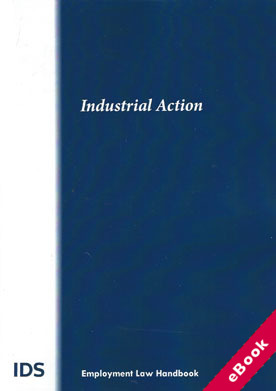We will be closed from 5pm Thursday 17th April for the Easter Bank Holidays, re-opening at 8.30am on Tuesday 22nd April. Any orders placed during this period will be processed when we re-open.

When negotiations with employers reach an impasse, trade uiiions will often flex their industrial muscle by threatening to take strike or other action.
In addition, industrial action in 'important public services' now require the support of at least 40 per cent of all those eligible to vote.
Industrial action can also have serious implications for individual employees' statutory employment rights, such as the right not to be unfairly dismissed and the right to a redundancy payment. The level of protection afforded to employees dismissed for taking part in a strike or other industrial action is severely restricted and depends on whether the union had authorised or endorsed the action, whether the dismissals were selective and whether the statutory immunities applied.
This new March 2017 edition of IDS Employment Law Handbook, Industrial Action aims to provide a clear and comprehensive account of the law on industrial action, highlighting the many important changes introduced by the 2016 Act.
Topics covered include the legal liabilities that may be incurred by trade unions; the basic immunity conferred on unions; the circumstances in which this immunity is forfeited, with particular focus on the statutory balloting and notification requirements; the law on picketing; and the remedies available in respect of industrial action that is not protected by statutory immunity.
The Handbook also looks at the law governing the dismissal of participants taking part in either official or unofficial industrial action and at the legal impact of strikes and other industrial action on various employment rights, such as the right to wages or to redundancy pay.
This timely Handbook provides an -authoritative and comprehensive guide to this important area of employment law at a time when strikes and industrial action are again hitting the headlines.